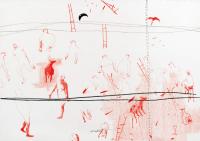 It is a fact: societies forget. Forgetting is a necessary process for creating collective identities, political solidarities and projects of social governance. It plays a role, too, in survival and rebeginning after civil wars or other crises in which societies break down.
It is a fact: societies forget. Forgetting is a necessary process for creating collective identities, political solidarities and projects of social governance. It plays a role, too, in survival and rebeginning after civil wars or other crises in which societies break down.
02.10.2018 | by Hélia Santos
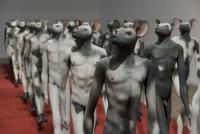 But we can't reverse History, even with the several attempts to naturalize it, to deny it and to manipulate it. Hence the importance of paying attention to the reluctant times we are now living in, which repeatedly insist on following the same old paradigms and refuse to make structural changes.
But we can't reverse History, even with the several attempts to naturalize it, to deny it and to manipulate it. Hence the importance of paying attention to the reluctant times we are now living in, which repeatedly insist on following the same old paradigms and refuse to make structural changes.
22.09.2018 | by Joacine Katar Moreira
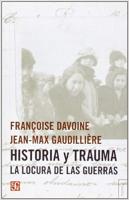 According to the authors themselves, reflecting on the complexity of the dilemma, “what cannot be said cannot be silenced either.” All of us at some point in our lives feel relief when it is possible to share something that affects us. We realize that whoever hears us, in addition to understanding us, validates and legitimizes what we are feeling with their gaze or words, thus confirming that we are not crazy.
According to the authors themselves, reflecting on the complexity of the dilemma, “what cannot be said cannot be silenced either.” All of us at some point in our lives feel relief when it is possible to share something that affects us. We realize that whoever hears us, in addition to understanding us, validates and legitimizes what we are feeling with their gaze or words, thus confirming that we are not crazy.
14.09.2018 | by Ana Tironi
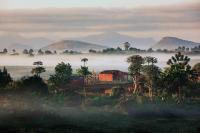 For many young people today, in Cape Verde, Guinea Bissau, Portugal, France, Brazil, the United States of America, Cabral represents the possibility of criticizing various forms of power, of resistance and of affirming their identities. The ways that Cabral has been taken up confirm that the originality of his praxis lies in its articulation of, and opposition to, different dimensions of domination and violence, from neo-colonialism to gender discrimination.
For many young people today, in Cape Verde, Guinea Bissau, Portugal, France, Brazil, the United States of America, Cabral represents the possibility of criticizing various forms of power, of resistance and of affirming their identities. The ways that Cabral has been taken up confirm that the originality of his praxis lies in its articulation of, and opposition to, different dimensions of domination and violence, from neo-colonialism to gender discrimination.
04.08.2018 | by Sílvia Roque
 One of the most important discoveries to which the museum of the “Discoveries” could lead would, thus, be the perception that the uses of language are not innocent and the grammar of memory has always much more to do with the present than with the past – the perception, in short, that, in the whole controversy, what is at stake is not simply what we were, but, rather, what we are and, above all, what we want to be.
One of the most important discoveries to which the museum of the “Discoveries” could lead would, thus, be the perception that the uses of language are not innocent and the grammar of memory has always much more to do with the present than with the past – the perception, in short, that, in the whole controversy, what is at stake is not simply what we were, but, rather, what we are and, above all, what we want to be.
14.07.2018 | by António Sousa Ribeiro
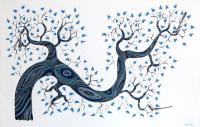 Now, forty-four years after the end of the War, for the former combatants who celebrate it in Belém, June 10 is, above all, a day when those who once fought together in Africa pay tribute to their comrades who died there. This year the meeting was celebrated for the 25th time. The same format unfolded: interfaith ceremony; speeches; a message from the President (in the Azores for other celebrations); parades, a cortège and the laying of flowers. Adriano Moreira did not speak, but he was a guest of honour. This tribute to the war-dead stages the consensus on which the meeting itself has always relied.
Now, forty-four years after the end of the War, for the former combatants who celebrate it in Belém, June 10 is, above all, a day when those who once fought together in Africa pay tribute to their comrades who died there. This year the meeting was celebrated for the 25th time. The same format unfolded: interfaith ceremony; speeches; a message from the President (in the Azores for other celebrations); parades, a cortège and the laying of flowers. Adriano Moreira did not speak, but he was a guest of honour. This tribute to the war-dead stages the consensus on which the meeting itself has always relied.
13.07.2018 | by Fátima da Cruz Rodrigues
 Which colonial or imperial history are we talking about? What do we know about this past, whether distant or recent? What do we really know about such fundamental questions as occupational or income structures in former colonial societies, or patterns of consumption, degrees of literacy, cultural practices, ideological possibilities, levels of political education and participation, or citizenship and land policies, in the city, countryside or in between?
Which colonial or imperial history are we talking about? What do we know about this past, whether distant or recent? What do we really know about such fundamental questions as occupational or income structures in former colonial societies, or patterns of consumption, degrees of literacy, cultural practices, ideological possibilities, levels of political education and participation, or citizenship and land policies, in the city, countryside or in between?
02.06.2018 | by Miguel Bandeira Jerónimo
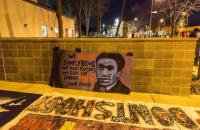 I want to first discuss the politics around teaching Fanon in today’s postcolonial world, and in particular in a post-Brexit Britain. What is it about Fanon that captures the hearts and minds of so many students, particularly students of colour? I then want to discuss the continuing debate around Fanon’s relationship to Marxism, looking at some of the ways in which Fanon’s work provides a refreshing lens on capitalism in the postcolonial world.
I want to first discuss the politics around teaching Fanon in today’s postcolonial world, and in particular in a post-Brexit Britain. What is it about Fanon that captures the hearts and minds of so many students, particularly students of colour? I then want to discuss the continuing debate around Fanon’s relationship to Marxism, looking at some of the ways in which Fanon’s work provides a refreshing lens on capitalism in the postcolonial world.
20.08.2017 | by Sara Salem
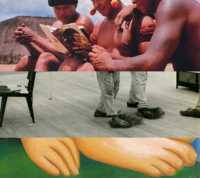 Art has always been able to gather critical tools of action from different contexts of knowledge in order to intervene in institutions, politics, and social problems. This makes it a privileged place to find new strategies for empistemodiversity. At the same time, art has always maintained a strict border between itself and popular culture, to ensure that art is on the same level as the Western sciences. What if this border disappeared? How do we construct a new language that uses popular knowledge not as a theme for contemporary art, but as a spark for creating new regimes of representation and new structures of thought? How can contemporary art contribute to the learning of epistemodiversity?
Art has always been able to gather critical tools of action from different contexts of knowledge in order to intervene in institutions, politics, and social problems. This makes it a privileged place to find new strategies for empistemodiversity. At the same time, art has always maintained a strict border between itself and popular culture, to ensure that art is on the same level as the Western sciences. What if this border disappeared? How do we construct a new language that uses popular knowledge not as a theme for contemporary art, but as a spark for creating new regimes of representation and new structures of thought? How can contemporary art contribute to the learning of epistemodiversity?
10.10.2016 | by María Iñigo Clavo
 Simone was able to conjure glamour in spite of everything the world said about black women who looked like her. And for that she enjoyed a special place in the pantheon of resistance. That fact doesn’t just have to do with her lyrics or her musicianship, but also how she looked. Simone is something more than a female Bob Marley. It is not simply the voice: It is the world that made that voice, all the hurt and pain of denigration, forged into something otherworldly.
Simone was able to conjure glamour in spite of everything the world said about black women who looked like her. And for that she enjoyed a special place in the pantheon of resistance. That fact doesn’t just have to do with her lyrics or her musicianship, but also how she looked. Simone is something more than a female Bob Marley. It is not simply the voice: It is the world that made that voice, all the hurt and pain of denigration, forged into something otherworldly.
23.03.2016 | by Ta-Nehisi Coates
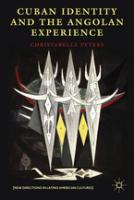 November 5, 1975 marked the 132nd year anniversary of the slave rebellion at the Triumvirato sugar plantation in Matanzas province, led by an enslaved African woman named Carlota. As one of the first acts in her liberation campaign, Carlota, accompanied by her captains, made her way to another plantation, Arcana, where a number of co-conspirators were being held in captivity following an uprising there in August of that year’s incendiary summer, when Africans and their descendants rose up against their enslavers throughout the province. As word spread of Carlota’s successes, one estate after another erupted in insurrection—San Miguel, Concepción, San Lorenzo, and San Rafael.
November 5, 1975 marked the 132nd year anniversary of the slave rebellion at the Triumvirato sugar plantation in Matanzas province, led by an enslaved African woman named Carlota. As one of the first acts in her liberation campaign, Carlota, accompanied by her captains, made her way to another plantation, Arcana, where a number of co-conspirators were being held in captivity following an uprising there in August of that year’s incendiary summer, when Africans and their descendants rose up against their enslavers throughout the province. As word spread of Carlota’s successes, one estate after another erupted in insurrection—San Miguel, Concepción, San Lorenzo, and San Rafael.
15.11.2015 | by Christabelle Peters
 If we accept that racism, sexism and other forms of oppression exist within language, then we must also recognize that it is through language – or languages – that oppression can be unmasked and combated. How? By allowing its structural, inclusive and persistent appeal to flow within the language towards creation and domesticated plurality. Linguistically created identities are not necessarily impenetrable frontiers or oppressive walls raised against the Other, but rather celebrations of every person’s multicolored singularity.
If we accept that racism, sexism and other forms of oppression exist within language, then we must also recognize that it is through language – or languages – that oppression can be unmasked and combated. How? By allowing its structural, inclusive and persistent appeal to flow within the language towards creation and domesticated plurality. Linguistically created identities are not necessarily impenetrable frontiers or oppressive walls raised against the Other, but rather celebrations of every person’s multicolored singularity.
17.08.2015 | by Hugo Monteiro
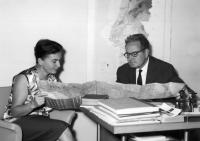 The work of Gilberto Freyre demonstrates his singular conception of time, merging past, present and future. Such conception shows us the ambiguities and contradictions when he speaks of the luso-tropical community. At times, he presents it as a past reality, dated from the 15th and 16th centuries, other times as a living, present reality, and other times even as future, destiny, idealization. It is mainly as a project that the idea of a luso-tropical community survived its author after the Portuguese empire ended. And it continues to this day in the Community of Portuguese Language Countries and in the more consensual political and ideological discourse about Portugal’s position in the world.
The work of Gilberto Freyre demonstrates his singular conception of time, merging past, present and future. Such conception shows us the ambiguities and contradictions when he speaks of the luso-tropical community. At times, he presents it as a past reality, dated from the 15th and 16th centuries, other times as a living, present reality, and other times even as future, destiny, idealization. It is mainly as a project that the idea of a luso-tropical community survived its author after the Portuguese empire ended. And it continues to this day in the Community of Portuguese Language Countries and in the more consensual political and ideological discourse about Portugal’s position in the world.
28.05.2015 | by Cláudia Castelo
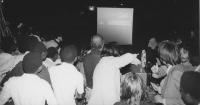 The solo exhibition ‘Monuments in Reverse’ gathers for the first time a set of works by Ângela Ferreira, made between 2008 and 2012, which emerged from the same research-based processes, giving rise, however, to disparate installations whose intimate relationships tend to remain unexplored from a curatorial perspective. With the aim of opening a space of visibility for the conceptual and formal interstices sustaining her practice in general and these works in particular, the exhibition is purposefully documentary and process-based. It intends to shed light on thinking processes more than points of arrival, through the possibility of new connections, or the visibility of previously occluded ones, the strong presence of drawing and video, and the dialogue with works by others which have constituted point of departure or inspiration.
The solo exhibition ‘Monuments in Reverse’ gathers for the first time a set of works by Ângela Ferreira, made between 2008 and 2012, which emerged from the same research-based processes, giving rise, however, to disparate installations whose intimate relationships tend to remain unexplored from a curatorial perspective. With the aim of opening a space of visibility for the conceptual and formal interstices sustaining her practice in general and these works in particular, the exhibition is purposefully documentary and process-based. It intends to shed light on thinking processes more than points of arrival, through the possibility of new connections, or the visibility of previously occluded ones, the strong presence of drawing and video, and the dialogue with works by others which have constituted point of departure or inspiration.
07.01.2015 | by Ana Balona de Oliveira
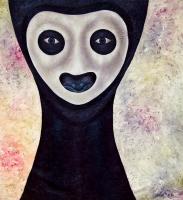 We know that racism is the social, cultural and political result of eurocentrism, which created the need to mark, distinguish and separate racialized ethnic groups of the human community, on the basis of skin color and/or culture. The main leverage associated with this dehumanizing enterprise of racialized ethnic groups was set on the power to construct myths that have always justified racism. In that regard, far from constituting a mere repository of unconscious and harmless prejudices, as it is often made believe, the analysis of the political situation, with the strengthening of fascism and the rise of the far right in Europe, demonstrates that racism remains at the junction of contemporary institutional political practices and the slavocratic, imperial and colonial ideologies.
We know that racism is the social, cultural and political result of eurocentrism, which created the need to mark, distinguish and separate racialized ethnic groups of the human community, on the basis of skin color and/or culture. The main leverage associated with this dehumanizing enterprise of racialized ethnic groups was set on the power to construct myths that have always justified racism. In that regard, far from constituting a mere repository of unconscious and harmless prejudices, as it is often made believe, the analysis of the political situation, with the strengthening of fascism and the rise of the far right in Europe, demonstrates that racism remains at the junction of contemporary institutional political practices and the slavocratic, imperial and colonial ideologies.
29.12.2014 | by Mamadou Ba
 Breyten Breytenbach is a distinguished poet, painter, novelist, playwright, essayist and human rights activist. He is considered one of the greatest living poets in Afrikaans. His literary work has been translated into many languages and he has been honoured with numerous literary and art awards. Having exhibited worldwide he is also a recognized painter, portraying surreal imagery. He was born on 16 September 1939 in Bonnievale and studied art at the Michaelis Art School in Cape Town.
Breyten Breytenbach is a distinguished poet, painter, novelist, playwright, essayist and human rights activist. He is considered one of the greatest living poets in Afrikaans. His literary work has been translated into many languages and he has been honoured with numerous literary and art awards. Having exhibited worldwide he is also a recognized painter, portraying surreal imagery. He was born on 16 September 1939 in Bonnievale and studied art at the Michaelis Art School in Cape Town.
27.08.2014 | by Breyten Breytenbach
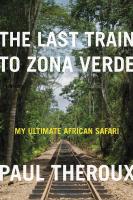 He dares refer to Angola as ‘pretty much terra incognita’ and even as a country in ‘isolation’. These descriptions are unfathomable when you consider even a basic historical listing that might take in the arrival of the Portuguese in the fifteenth century, the onward creep of Christianity, the trans-Atlantic slave trade, Portuguese colonialism, the proxy Cold War, the international oil and diamond industries, and more recently the influx of the Chinese, not to mention Angola’s major financial investments in Portugal and the explosion of kuduro music across the globe. Even at the micro level, there are plenty of Angolans who live in Luanda’s musseques, but travel across the globe to buy clothes, soft furnishings and mobile phones to sell back home. Isolated? I think not. Unknown to parochial North Americans? No doubt.
He dares refer to Angola as ‘pretty much terra incognita’ and even as a country in ‘isolation’. These descriptions are unfathomable when you consider even a basic historical listing that might take in the arrival of the Portuguese in the fifteenth century, the onward creep of Christianity, the trans-Atlantic slave trade, Portuguese colonialism, the proxy Cold War, the international oil and diamond industries, and more recently the influx of the Chinese, not to mention Angola’s major financial investments in Portugal and the explosion of kuduro music across the globe. Even at the micro level, there are plenty of Angolans who live in Luanda’s musseques, but travel across the globe to buy clothes, soft furnishings and mobile phones to sell back home. Isolated? I think not. Unknown to parochial North Americans? No doubt.
12.10.2013 | by Lara Pawson
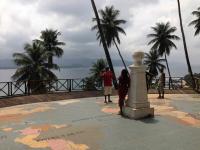 I will begin by reviewing two contrastive approaches in the anthropological and neighboring literatures on Latin America: the postcolonial and the multiple modernities perspectives. It then discusses the possible place(s) of Brazilian classic nation-building literature in these debates, putting forth an argument for the need for substantial historical embedding when addressing the postcolonial in relation to Brazil. It concludes with remarks based on ongoing ethnographic research about contemporary South-South cooperation between Brazil and the African continent.
I will begin by reviewing two contrastive approaches in the anthropological and neighboring literatures on Latin America: the postcolonial and the multiple modernities perspectives. It then discusses the possible place(s) of Brazilian classic nation-building literature in these debates, putting forth an argument for the need for substantial historical embedding when addressing the postcolonial in relation to Brazil. It concludes with remarks based on ongoing ethnographic research about contemporary South-South cooperation between Brazil and the African continent.
11.10.2013 | by Letícia Cesarino
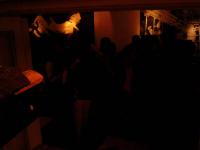 Latin American intellectuals have been in the forefront of doing mestiçage, métissage, Anthropophagy. While we certainly consider ourselves as part of Postcolonial theory, we have also critiqued certain of its aspects, for example the ahistorical, uncritical celebration of hybridity discourse. We were asking: “What are the genealogies of such discourses?” We prefer to emphasize the question of “linked analogies” between and across national borders. So for us, cross-border analysis becomes really crucial. It is not reducible to nation-state formations.
Latin American intellectuals have been in the forefront of doing mestiçage, métissage, Anthropophagy. While we certainly consider ourselves as part of Postcolonial theory, we have also critiqued certain of its aspects, for example the ahistorical, uncritical celebration of hybridity discourse. We were asking: “What are the genealogies of such discourses?” We prefer to emphasize the question of “linked analogies” between and across national borders. So for us, cross-border analysis becomes really crucial. It is not reducible to nation-state formations.
01.10.2013 | by Emanuelle Santos and Patricia Schor
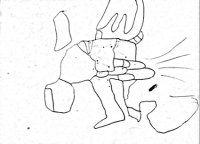 I read with attention the news of the arrival of more and more emigrants to the "shores of Europe" (which should their Europe be? In which window would they have drawn it in backlight?); I realize their presence in this Europe I live in, I feel the law enforcement and the construction of detention camps to accommodate them, society changing with their presence, my presence changing with their presence, Lisbon becoming a European capital, me becoming a Europe I don't want to be.
I read with attention the news of the arrival of more and more emigrants to the "shores of Europe" (which should their Europe be? In which window would they have drawn it in backlight?); I realize their presence in this Europe I live in, I feel the law enforcement and the construction of detention camps to accommodate them, society changing with their presence, my presence changing with their presence, Lisbon becoming a European capital, me becoming a Europe I don't want to be.
26.05.2013 | by Ana Bigotte Vieira
 It is a fact: societies forget. Forgetting is a necessary process for creating collective identities, political solidarities and projects of social governance. It plays a role, too, in survival and rebeginning after civil wars or other crises in which societies break down.
It is a fact: societies forget. Forgetting is a necessary process for creating collective identities, political solidarities and projects of social governance. It plays a role, too, in survival and rebeginning after civil wars or other crises in which societies break down.  But we can't reverse History, even with the several attempts to naturalize it, to deny it and to manipulate it. Hence the importance of paying attention to the reluctant times we are now living in, which repeatedly insist on following the same old paradigms and refuse to make structural changes.
But we can't reverse History, even with the several attempts to naturalize it, to deny it and to manipulate it. Hence the importance of paying attention to the reluctant times we are now living in, which repeatedly insist on following the same old paradigms and refuse to make structural changes.  According to the authors themselves, reflecting on the complexity of the dilemma, “what cannot be said cannot be silenced either.” All of us at some point in our lives feel relief when it is possible to share something that affects us. We realize that whoever hears us, in addition to understanding us, validates and legitimizes what we are feeling with their gaze or words, thus confirming that we are not crazy.
According to the authors themselves, reflecting on the complexity of the dilemma, “what cannot be said cannot be silenced either.” All of us at some point in our lives feel relief when it is possible to share something that affects us. We realize that whoever hears us, in addition to understanding us, validates and legitimizes what we are feeling with their gaze or words, thus confirming that we are not crazy.  For many young people today, in Cape Verde, Guinea Bissau, Portugal, France, Brazil, the United States of America, Cabral represents the possibility of criticizing various forms of power, of resistance and of affirming their identities. The ways that Cabral has been taken up confirm that the originality of his praxis lies in its articulation of, and opposition to, different dimensions of domination and violence, from neo-colonialism to gender discrimination.
For many young people today, in Cape Verde, Guinea Bissau, Portugal, France, Brazil, the United States of America, Cabral represents the possibility of criticizing various forms of power, of resistance and of affirming their identities. The ways that Cabral has been taken up confirm that the originality of his praxis lies in its articulation of, and opposition to, different dimensions of domination and violence, from neo-colonialism to gender discrimination.  One of the most important discoveries to which the museum of the “Discoveries” could lead would, thus, be the perception that the uses of language are not innocent and the grammar of memory has always much more to do with the present than with the past – the perception, in short, that, in the whole controversy, what is at stake is not simply what we were, but, rather, what we are and, above all, what we want to be.
One of the most important discoveries to which the museum of the “Discoveries” could lead would, thus, be the perception that the uses of language are not innocent and the grammar of memory has always much more to do with the present than with the past – the perception, in short, that, in the whole controversy, what is at stake is not simply what we were, but, rather, what we are and, above all, what we want to be.  Now, forty-four years after the end of the War, for the former combatants who celebrate it in Belém, June 10 is, above all, a day when those who once fought together in Africa pay tribute to their comrades who died there. This year the meeting was celebrated for the 25th time. The same format unfolded: interfaith ceremony; speeches; a message from the President (in the Azores for other celebrations); parades, a cortège and the laying of flowers. Adriano Moreira did not speak, but he was a guest of honour. This tribute to the war-dead stages the consensus on which the meeting itself has always relied.
Now, forty-four years after the end of the War, for the former combatants who celebrate it in Belém, June 10 is, above all, a day when those who once fought together in Africa pay tribute to their comrades who died there. This year the meeting was celebrated for the 25th time. The same format unfolded: interfaith ceremony; speeches; a message from the President (in the Azores for other celebrations); parades, a cortège and the laying of flowers. Adriano Moreira did not speak, but he was a guest of honour. This tribute to the war-dead stages the consensus on which the meeting itself has always relied.  Which colonial or imperial history are we talking about? What do we know about this past, whether distant or recent? What do we really know about such fundamental questions as occupational or income structures in former colonial societies, or patterns of consumption, degrees of literacy, cultural practices, ideological possibilities, levels of political education and participation, or citizenship and land policies, in the city, countryside or in between?
Which colonial or imperial history are we talking about? What do we know about this past, whether distant or recent? What do we really know about such fundamental questions as occupational or income structures in former colonial societies, or patterns of consumption, degrees of literacy, cultural practices, ideological possibilities, levels of political education and participation, or citizenship and land policies, in the city, countryside or in between?  I want to first discuss the politics around teaching Fanon in today’s postcolonial world, and in particular in a post-Brexit Britain. What is it about Fanon that captures the hearts and minds of so many students, particularly students of colour? I then want to discuss the continuing debate around Fanon’s relationship to Marxism, looking at some of the ways in which Fanon’s work provides a refreshing lens on capitalism in the postcolonial world.
I want to first discuss the politics around teaching Fanon in today’s postcolonial world, and in particular in a post-Brexit Britain. What is it about Fanon that captures the hearts and minds of so many students, particularly students of colour? I then want to discuss the continuing debate around Fanon’s relationship to Marxism, looking at some of the ways in which Fanon’s work provides a refreshing lens on capitalism in the postcolonial world.  Art has always been able to gather critical tools of action from different contexts of knowledge in order to intervene in institutions, politics, and social problems. This makes it a privileged place to find new strategies for empistemodiversity. At the same time, art has always maintained a strict border between itself and popular culture, to ensure that art is on the same level as the Western sciences. What if this border disappeared? How do we construct a new language that uses popular knowledge not as a theme for contemporary art, but as a spark for creating new regimes of representation and new structures of thought? How can contemporary art contribute to the learning of epistemodiversity?
Art has always been able to gather critical tools of action from different contexts of knowledge in order to intervene in institutions, politics, and social problems. This makes it a privileged place to find new strategies for empistemodiversity. At the same time, art has always maintained a strict border between itself and popular culture, to ensure that art is on the same level as the Western sciences. What if this border disappeared? How do we construct a new language that uses popular knowledge not as a theme for contemporary art, but as a spark for creating new regimes of representation and new structures of thought? How can contemporary art contribute to the learning of epistemodiversity?  Simone was able to conjure glamour in spite of everything the world said about black women who looked like her. And for that she enjoyed a special place in the pantheon of resistance. That fact doesn’t just have to do with her lyrics or her musicianship, but also how she looked. Simone is something more than a female Bob Marley. It is not simply the voice: It is the world that made that voice, all the hurt and pain of denigration, forged into something otherworldly.
Simone was able to conjure glamour in spite of everything the world said about black women who looked like her. And for that she enjoyed a special place in the pantheon of resistance. That fact doesn’t just have to do with her lyrics or her musicianship, but also how she looked. Simone is something more than a female Bob Marley. It is not simply the voice: It is the world that made that voice, all the hurt and pain of denigration, forged into something otherworldly.  November 5, 1975 marked the 132nd year anniversary of the slave rebellion at the Triumvirato sugar plantation in Matanzas province, led by an enslaved African woman named Carlota. As one of the first acts in her liberation campaign, Carlota, accompanied by her captains, made her way to another plantation, Arcana, where a number of co-conspirators were being held in captivity following an uprising there in August of that year’s incendiary summer, when Africans and their descendants rose up against their enslavers throughout the province. As word spread of Carlota’s successes, one estate after another erupted in insurrection—San Miguel, Concepción, San Lorenzo, and San Rafael.
November 5, 1975 marked the 132nd year anniversary of the slave rebellion at the Triumvirato sugar plantation in Matanzas province, led by an enslaved African woman named Carlota. As one of the first acts in her liberation campaign, Carlota, accompanied by her captains, made her way to another plantation, Arcana, where a number of co-conspirators were being held in captivity following an uprising there in August of that year’s incendiary summer, when Africans and their descendants rose up against their enslavers throughout the province. As word spread of Carlota’s successes, one estate after another erupted in insurrection—San Miguel, Concepción, San Lorenzo, and San Rafael.  If we accept that racism, sexism and other forms of oppression exist within language, then we must also recognize that it is through language – or languages – that oppression can be unmasked and combated. How? By allowing its structural, inclusive and persistent appeal to flow within the language towards creation and domesticated plurality. Linguistically created identities are not necessarily impenetrable frontiers or oppressive walls raised against the Other, but rather celebrations of every person’s multicolored singularity.
If we accept that racism, sexism and other forms of oppression exist within language, then we must also recognize that it is through language – or languages – that oppression can be unmasked and combated. How? By allowing its structural, inclusive and persistent appeal to flow within the language towards creation and domesticated plurality. Linguistically created identities are not necessarily impenetrable frontiers or oppressive walls raised against the Other, but rather celebrations of every person’s multicolored singularity.  The work of Gilberto Freyre demonstrates his singular conception of time, merging past, present and future. Such conception shows us the ambiguities and contradictions when he speaks of the luso-tropical community. At times, he presents it as a past reality, dated from the 15th and 16th centuries, other times as a living, present reality, and other times even as future, destiny, idealization. It is mainly as a project that the idea of a luso-tropical community survived its author after the Portuguese empire ended. And it continues to this day in the Community of Portuguese Language Countries and in the more consensual political and ideological discourse about Portugal’s position in the world.
The work of Gilberto Freyre demonstrates his singular conception of time, merging past, present and future. Such conception shows us the ambiguities and contradictions when he speaks of the luso-tropical community. At times, he presents it as a past reality, dated from the 15th and 16th centuries, other times as a living, present reality, and other times even as future, destiny, idealization. It is mainly as a project that the idea of a luso-tropical community survived its author after the Portuguese empire ended. And it continues to this day in the Community of Portuguese Language Countries and in the more consensual political and ideological discourse about Portugal’s position in the world.  The solo exhibition ‘Monuments in Reverse’ gathers for the first time a set of works by Ângela Ferreira, made between 2008 and 2012, which emerged from the same research-based processes, giving rise, however, to disparate installations whose intimate relationships tend to remain unexplored from a curatorial perspective. With the aim of opening a space of visibility for the conceptual and formal interstices sustaining her practice in general and these works in particular, the exhibition is purposefully documentary and process-based. It intends to shed light on thinking processes more than points of arrival, through the possibility of new connections, or the visibility of previously occluded ones, the strong presence of drawing and video, and the dialogue with works by others which have constituted point of departure or inspiration.
The solo exhibition ‘Monuments in Reverse’ gathers for the first time a set of works by Ângela Ferreira, made between 2008 and 2012, which emerged from the same research-based processes, giving rise, however, to disparate installations whose intimate relationships tend to remain unexplored from a curatorial perspective. With the aim of opening a space of visibility for the conceptual and formal interstices sustaining her practice in general and these works in particular, the exhibition is purposefully documentary and process-based. It intends to shed light on thinking processes more than points of arrival, through the possibility of new connections, or the visibility of previously occluded ones, the strong presence of drawing and video, and the dialogue with works by others which have constituted point of departure or inspiration.  We know that racism is the social, cultural and political result of eurocentrism, which created the need to mark, distinguish and separate racialized ethnic groups of the human community, on the basis of skin color and/or culture. The main leverage associated with this dehumanizing enterprise of racialized ethnic groups was set on the power to construct myths that have always justified racism. In that regard, far from constituting a mere repository of unconscious and harmless prejudices, as it is often made believe, the analysis of the political situation, with the strengthening of fascism and the rise of the far right in Europe, demonstrates that racism remains at the junction of contemporary institutional political practices and the slavocratic, imperial and colonial ideologies.
We know that racism is the social, cultural and political result of eurocentrism, which created the need to mark, distinguish and separate racialized ethnic groups of the human community, on the basis of skin color and/or culture. The main leverage associated with this dehumanizing enterprise of racialized ethnic groups was set on the power to construct myths that have always justified racism. In that regard, far from constituting a mere repository of unconscious and harmless prejudices, as it is often made believe, the analysis of the political situation, with the strengthening of fascism and the rise of the far right in Europe, demonstrates that racism remains at the junction of contemporary institutional political practices and the slavocratic, imperial and colonial ideologies.  Breyten Breytenbach is a distinguished poet, painter, novelist, playwright, essayist and human rights activist. He is considered one of the greatest living poets in Afrikaans. His literary work has been translated into many languages and he has been honoured with numerous literary and art awards. Having exhibited worldwide he is also a recognized painter, portraying surreal imagery. He was born on 16 September 1939 in Bonnievale and studied art at the Michaelis Art School in Cape Town.
Breyten Breytenbach is a distinguished poet, painter, novelist, playwright, essayist and human rights activist. He is considered one of the greatest living poets in Afrikaans. His literary work has been translated into many languages and he has been honoured with numerous literary and art awards. Having exhibited worldwide he is also a recognized painter, portraying surreal imagery. He was born on 16 September 1939 in Bonnievale and studied art at the Michaelis Art School in Cape Town.  He dares refer to Angola as ‘pretty much terra incognita’ and even as a country in ‘isolation’. These descriptions are unfathomable when you consider even a basic historical listing that might take in the arrival of the Portuguese in the fifteenth century, the onward creep of Christianity, the trans-Atlantic slave trade, Portuguese colonialism, the proxy Cold War, the international oil and diamond industries, and more recently the influx of the Chinese, not to mention Angola’s major financial investments in Portugal and the explosion of kuduro music across the globe. Even at the micro level, there are plenty of Angolans who live in Luanda’s musseques, but travel across the globe to buy clothes, soft furnishings and mobile phones to sell back home. Isolated? I think not. Unknown to parochial North Americans? No doubt.
He dares refer to Angola as ‘pretty much terra incognita’ and even as a country in ‘isolation’. These descriptions are unfathomable when you consider even a basic historical listing that might take in the arrival of the Portuguese in the fifteenth century, the onward creep of Christianity, the trans-Atlantic slave trade, Portuguese colonialism, the proxy Cold War, the international oil and diamond industries, and more recently the influx of the Chinese, not to mention Angola’s major financial investments in Portugal and the explosion of kuduro music across the globe. Even at the micro level, there are plenty of Angolans who live in Luanda’s musseques, but travel across the globe to buy clothes, soft furnishings and mobile phones to sell back home. Isolated? I think not. Unknown to parochial North Americans? No doubt.  I will begin by reviewing two contrastive approaches in the anthropological and neighboring literatures on Latin America: the postcolonial and the multiple modernities perspectives. It then discusses the possible place(s) of Brazilian classic nation-building literature in these debates, putting forth an argument for the need for substantial historical embedding when addressing the postcolonial in relation to Brazil. It concludes with remarks based on ongoing ethnographic research about contemporary South-South cooperation between Brazil and the African continent.
I will begin by reviewing two contrastive approaches in the anthropological and neighboring literatures on Latin America: the postcolonial and the multiple modernities perspectives. It then discusses the possible place(s) of Brazilian classic nation-building literature in these debates, putting forth an argument for the need for substantial historical embedding when addressing the postcolonial in relation to Brazil. It concludes with remarks based on ongoing ethnographic research about contemporary South-South cooperation between Brazil and the African continent.  Latin American intellectuals have been in the forefront of doing mestiçage, métissage, Anthropophagy. While we certainly consider ourselves as part of Postcolonial theory, we have also critiqued certain of its aspects, for example the ahistorical, uncritical celebration of hybridity discourse. We were asking: “What are the genealogies of such discourses?” We prefer to emphasize the question of “linked analogies” between and across national borders. So for us, cross-border analysis becomes really crucial. It is not reducible to nation-state formations.
Latin American intellectuals have been in the forefront of doing mestiçage, métissage, Anthropophagy. While we certainly consider ourselves as part of Postcolonial theory, we have also critiqued certain of its aspects, for example the ahistorical, uncritical celebration of hybridity discourse. We were asking: “What are the genealogies of such discourses?” We prefer to emphasize the question of “linked analogies” between and across national borders. So for us, cross-border analysis becomes really crucial. It is not reducible to nation-state formations.  I read with attention the news of the arrival of more and more emigrants to the "shores of Europe" (which should their Europe be? In which window would they have drawn it in backlight?); I realize their presence in this Europe I live in, I feel the law enforcement and the construction of detention camps to accommodate them, society changing with their presence, my presence changing with their presence, Lisbon becoming a European capital, me becoming a Europe I don't want to be.
I read with attention the news of the arrival of more and more emigrants to the "shores of Europe" (which should their Europe be? In which window would they have drawn it in backlight?); I realize their presence in this Europe I live in, I feel the law enforcement and the construction of detention camps to accommodate them, society changing with their presence, my presence changing with their presence, Lisbon becoming a European capital, me becoming a Europe I don't want to be.
